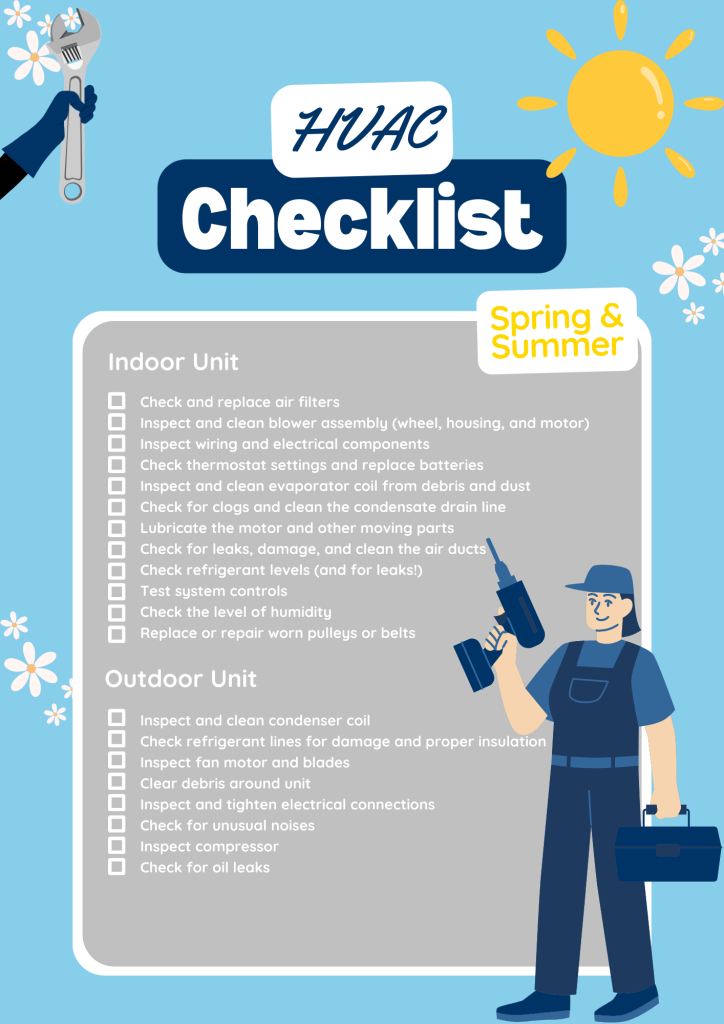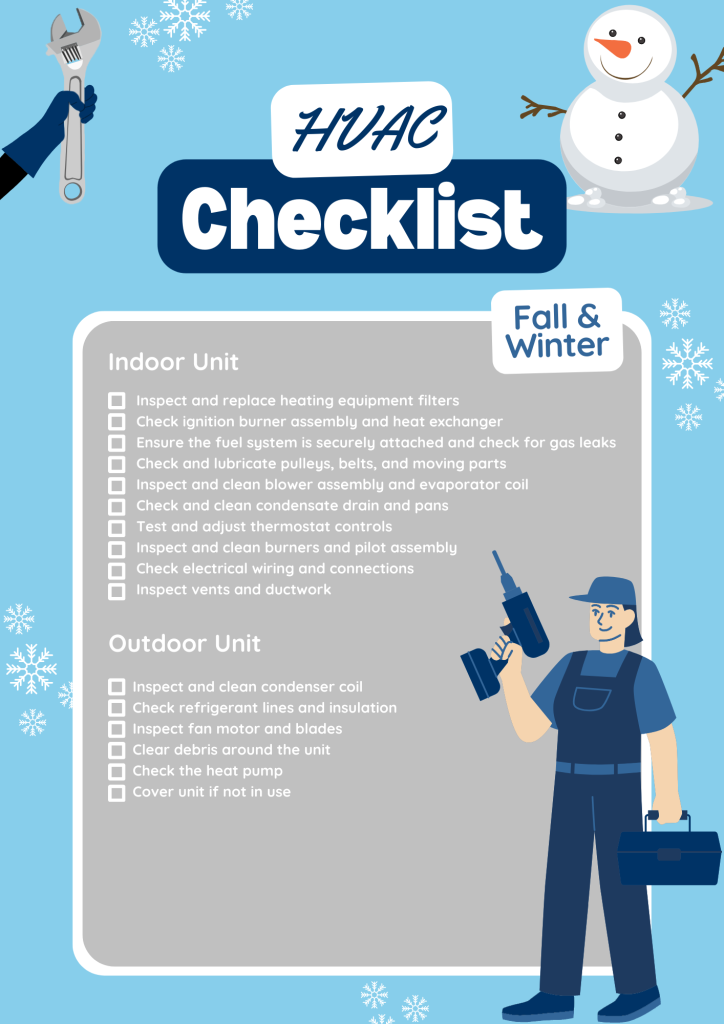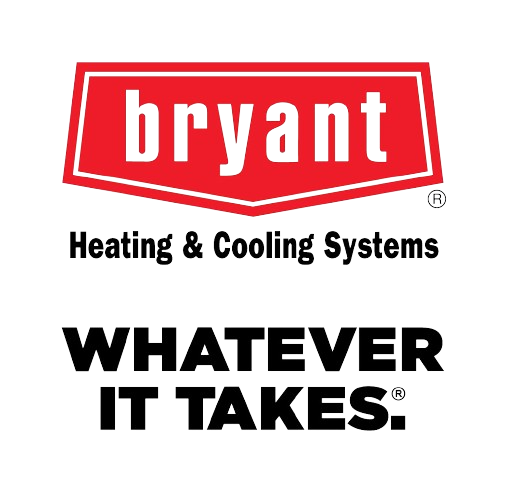Heating, ventilation, and air conditioning—we usually only appreciate them once they’ve stopped working. But did you know you can bypass the breakdowns?
With preventative HVAC system maintenance, you can ensure there won’t be any surprises, and you’ll watch those energy bills drop in the long run!
There are many ups and downs regarding HVAC units, how they run, and when to fix them, but you’re in luck! From tips and tricks to industry advice and checklists, this guide has everything you need to keep your system running smoothly year-round.
Content Table
Why HVAC Maintenance Is Important
Would you go a long time without going to the doctor? Even if nothing hurts, you must visit at least twice yearly to check for potential problems and ensure you’re healthy. The same applies to an HVAC system—it needs routine maintenance to avoid problems and continue working efficiently in your home.
Don’t postpone heating and cooling maintenance. It could lead to frequent breakdowns and costly repairs, and you’ll miss out on all the great benefits of HVAC system service, like:
Extending the life of the system
Regularly scheduled tune-ups for your HVAC unit keep it healthy, just like doctor’s appointments. With proper unit upkeep, you can avoid breakdowns and enjoy your air conditioning for up to a decade or more without failure.
Less frequent emergency repairs
Wouldn’t a breakdown be awful during extreme weather conditions? Like all machinery, HVAC systems will need emergency repairs at some point in their lifetime. However, keeping your system well-maintained decreases the chances of a breakdown, and parts are less likely to wear down when you use your unit more often. With annual heat and cool tune-ups, you won’t have to worry about your unit failing you.
Energy efficiency
When HVAC systems run efficiently, they help reduce energy costs because they undergo less strain on the mechanical components. This allows the system to run smoother and use less energy during operation. This is why getting tune-ups is SO important. With proper heating and cooling maintenance, annual inspections will be even easier.
Clean air in your house
Did you know a well-maintained HVAC unit can also improve and maintain proper airflow in your home? By keeping the coils and filters clean, you get comfortable temperatures all year long AND clean air free of bacteria, mold, fungi, and more.
Health and safety
Getting clean air is one perk, but avoiding carbon monoxide poisoning is another story! Regular system checkups can keep you and your family safe.
Carbon monoxide, a poisonous and odorless gas, is lethal, and leaks are always possible in heat and cooling systems. Technicians check for these leaks as part of HVAC maintenance plans to ensure you’re not in danger. And you can even have carbon monoxide detectors installed to alert you.
Remember that gas furnaces emit trace amounts of carbon monoxide continuously, which isn’t a threat to your family with proper ventilation.
Do you understand why HVAC system maintenance is so important now?
Types Of HVAC Maintenance
There are many different maintenance strategies to keep your system up and running throughout all seasons. After all, no two HVAC units are the same. Even two identical air conditioners can differ in age, manufacturer, maintenance schedules, and repair history. Because of this, each system requires a different approach to tune-ups.
The basic upkeep types that you should know are:
- Reactive (run-to-failure) maintenance
- Predetermined maintenance
- Condition-based maintenance
- Preventative maintenance
- Predictive maintenance
Let’s dive into the difference between preventative and predictive maintenance. While they may sound similar, there are key differences that matter.
Predictive maintenance
When a piece of equipment breaks down, data is collected and analyzed to predict future failures. Based on that information, a predictive maintenance schedule is created. This schedule acts as a guide to alert people that the equipment will be outside the normal range of optimal operating conditions at the expected time.
Predictive maintenance has many benefits, such as saving money on repairs and replacements and overall improved HVAC performance because all your parts will be in good shape.
Preventative maintenance
Preventative HVAC system maintenance entails routine checks and inspections to fix minor issues from wear and tear. It also helps discover problems before they get out of control.
Preventative cooling and heating maintenance has many benefits, including saving money on significant repair costs, extending the HVAC system’s lifetime, and increasing efficiency to reduce energy costs.
What Does HVAC Maintenance Include?
Every system is different, from the air conditioner to the outdoor unit. Before diving into what HVAC maintenance plans include, remember to look at the unit’s user manual. Manufacturers put time and care into crafting the perfect heating and cooling solution for your home, so they know best!
Heating system maintenance
A certified HVAC technician will inspect and test your furnace or boiler for a heating maintenance check. They will also check and clean the furnace filter and internal components for damage. If necessary, they may switch some parts out or replace them if the problem is beyond repair.
After all the inspections and repairs are done, the furnace is turned on and monitored while running to ensure all components run smoothly. This also checks your unit’s energy consumption to ensure energy efficiency. No more inflated utility bills!
Cooling system maintenance
Before the summer heat hits, you may want to inspect your home’s air conditioner to ensure it’s in great condition. A professional will check the interior and exterior components, including internal parts, motors, belts, and filters, to rid your home of harmful microbes and debris. The level of coolant is also measured and replaced if necessary.
Next, the AC maintenance technician will check all circuits and electrical components for signs of wear and tear. If any problems are found, the technician will repair or replace them to prevent fire hazards or power failure. Finally, the outdoor unit is checked to align for optimal performance all season long.
If You’re Looking for Cooling or Heating Systems Maintenance Services in the Coachella Valley Area
HVAC Preventative Maintenance Checklists
If heating and cooling maintenance sounds like a lot of work, that’s because it is! From AC repairs to heating hassles, there’s much to remember. But don’t worry; having a handy maintenance checklist can help you know what to look for in an HVAC maintenance plan (and ensure you get what you paid for!)
A quarterly preventative HVAC system maintenance plan is the best for ensuring your systems stay in good shape all year long because the coils and filters always remain clean. This means you will have good air quality and efficient heating and cooling all year without surprise issues.
However, there are a few other tasks you can do between visits from an HVAC system maintenance professional:
- Check your air filter every month: Most filters last between 30 and 90, so know when to replace your filter and do so when the time comes.
- Clean the area around the outdoor unit and the unit itself: Rinse it with water, sweep the area to keep it free of leaves and twigs, and cut back foliage to at least an 18-inch distance from the unit.
- Ensure curtains, furniture, mats, and other appliances are not blocking the supply and return registers.
- Inspect the refrigerant lines that run from your HVAC system to your home every month. If they wear out, leak, or become disconnected, you risk uncomfortable home temperatures.
- Ensure your HVAC system is level, not tilted, for it to work properly. Check every two to three months, and if your unit is on pads, double-check that the pads have not moved.
By following these steps, your HVAC will be in good shape during and between maintenance checks. It’s best to schedule your check ups in the spring and fall to make sure your system is ready before more extreme temperatures arrive. That means AC maintenance before summer, and heating maintenance before winter! Here are a few things to keep in mind:
Spring and summer HVAC preventative maintenance checklist
After a long winter of disuse, you must prep your air conditioning system before turning it on. Some AC maintenance tasks you should do to ready your unit for the summer include:

Although the winter heating maintenance checklist below may be similar to this AC maintenance list, some tasks can differ depending on whether you use the same HVAC system to heat and cool your home. If you use a furnace, that’s a different story.
Fall and winter HVAC preventative maintenance checklist
Now, here’s a handy heating maintenance checklist, winter edition. These tasks are usually carried out by a professional. They will ensure your heating system is ready for winter:

Remember, different units require different things, so maybe not all of the above will apply to yours. However, this heating maintenance checklist will give you a good idea of what to look for in an HVAC preventative maintenance contract.
Frequent Questions About HVAC Maintenance
Depending on the type of filter, it’s recommended that you change your air filter every 1-2 months. Regularly checking and replacing your air filter ensures your HVAC system runs efficiently and maintains good air quality.
Every air conditioner is different. Your HVAC service provider should thoroughly inspect your space, unit, and type of problem before giving you an estimate.
Modern AC units are built to withstand winter weather. However, if you live in an area with heavy snowfall or ice, covering the top of the unit can prevent debris buildup.
The air filter size you need depends on your HVAC system’s specifications. You can find the correct size by checking the existing filter or referring to the manufacturer’s guidelines. Using the right size is crucial to ensure proper airflow and filtration.
If you notice visible mold growth, excessive dust, or a significant decrease in air quality, it might be necessary to clean the area sooner rather than later. Preventative heating and AC maintenance, such as regular inspections, is key to ensuring indoor air quality.
Remove the thermostat cover, which may snap off or require unscrewing. Locate the battery compartment, remove the old batteries, and insert new ones, ensuring correct polarity. Reattach the cover and test the thermostat to ensure it’s working properly.
Prioritizing HVAC Maintenance = Prioritizing Yourself
All AC and HVAC maintenance inspections aim to prevent problems and ensure that your systems work efficiently all year.
Some standard tasks, like replacing an air filter, can be done yourself. But unless you’re a trained professional, you should leave most tasks to a licensed technician. Because of the complexity of a heating and cooling system, you may miss issues or make them worse and double the damage.
Also, a professional should ALWAYS perform electrical service due to its dangerous nature. Never DIY an electrical repair or replacement.
Following these HVAC system maintenance tips and scheduling inspections at the right time will keep your home comfortable for years.

